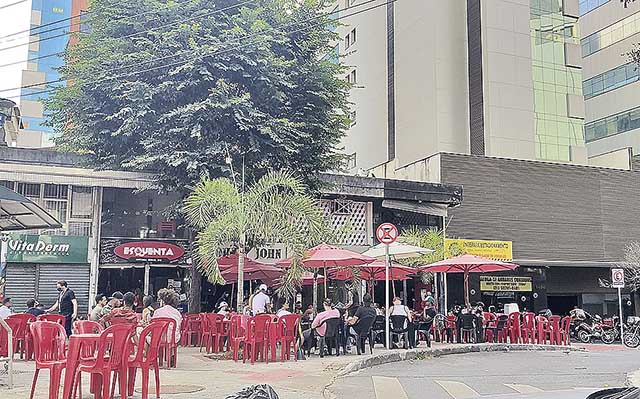
A survey conducted by Bain & Company with 2,000 Brazilians found the intent of consumer habits after controlling for the risk of COVID-19.
With restrictions imposed by the pandemic ending, citizens will be more likely to visit cinemas (57%), frequent bars and restaurants (65%) and shop in physical stores (40%). According to the survey, the number of respondents who have not done these activities since the start of the pandemic were 79%, 65% and 60% respectively.
The survey shows an impetus for the travel and tourism sector. About 40% of Brazilians intend to travel by plane and stay in a hotel. For more than half of these people, it will happen within a few months.
Data released by Bain & Company also shows that there have been major changes in the way Brazilians spend. The focus was on supermarkets, delivery and health, but the study showed there is a lack of demand for several categories that consumers expect to spend more in the future, primarily on travel, food, beverage and beauty. . According to the study, the sectors of consumption that will have an impact after the pandemic are:
food – Compared to the period before COVID-19, consumers increased their meals at home and reduced their time at restaurants. While home cooking is here to stay, restaurant spending is expected to rise as the pandemic wears off, reaching higher levels than pre-pandemic.
alcohol consumption – Consumption decreased during the pandemic, especially outside the home. However, alcohol consumption in restaurants and bars is expected to increase by 30% post COVID.
Beauty Spending on beauty products and services decreased with COVID, but spending on home beauty products and beauty services is expected to increase by around 20%.
Training – 72% of Brazilians increased their time on streaming services and 78% increased their time on social media – a trend that should continue. Less time spent on video games
physical conditioning Outdoor exercise should be increased when the epidemic is over. Enthusiasm for returning to gyms is high and about 50% plan to do so soon after the ban is lifted.
Financial condition can be a hindrance to recovery
Although the study estimated activities that Brazilians would like to do once the pandemic is under control, Bain & Co said the financial situation could be a stumbling block, as Brazilians’ incomes were affected more than in other economies. Was.
In Brazil, the number of people saving less money was 28% higher than the number of respondents saving more. In the United States, in turn, the number of people who saved more or less money was 16% higher.
“In America and Europe, people were able to save more. In Brazil, however, the opposite was true. This is due to the effects of reduced economic activity, employment and income. One of the relevant elements of this trend is to indicate how much purchasing power will decrease, and how people are leaving this pandemic with money in their pockets”, said Federico, leader of consumer goods practice at Bain & Co in South America. Eisner highlighted.
Post-pandemic consumer behavior changes
The study showed that the COVID-19 pandemic has affected the way consumers relate to their shopping habits, and many of these acquired behaviors are likely to persist after the end of the pandemic.
According to Bain, habits related to the home environment, which people perform activities at home, should remain relevant even after the end of the pandemic. These activities were detected, with the survey indicating that cooking (84%), watching television (77%) and taking care of the home (64%) were the main reasons reported by consumers during the pandemic. Health-related activities such as exercise (56%) and virtual fitness classes (54%) also increased.
“Many of these behaviors that were acquired during the pandemic remain in place. And these new habits that consumers have added to their home routines, such as cooking, watching TV, playing video games and taking care of their home, in addition to all health care related topics, should be continued with physical exercise.” said Luciana Batista, partner at Bain & Company.



